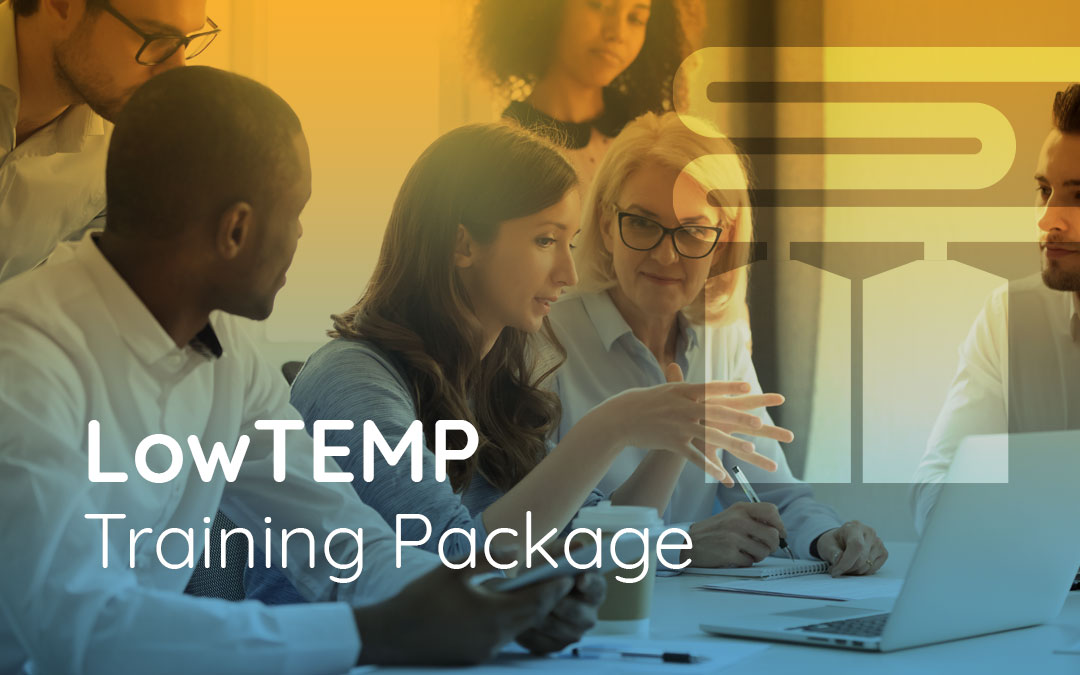Efficient district heating systems are an important component of sustainable energy supply and help to reduce energy waste and greenhouse gas emissions (CO2). To achieve this goal, LowTEMP strengthens the know-how and awareness of the responsible public and private actors for the necessity of using intelligent and sustainable energy supply systems. These systems enable the use of renewable or unused surplus heat and the distribution of low-temperature heat. After two and a half years of project implementation, sharing and expanding expertise, the LowTEMP consortium tested the first set of teaching materials for a two- to three-day seminar. This is aimed at municipal representatives responsible for energy issues, energy utilities, energy agencies, planners and engineers in the Baltic Sea Region (BSR) and includes innovative strategies and tools for planning, financing and managing NTFW systems. The project has now reached a point where the modules and seminars need to be tested. In order to successfully conduct this first trial despite the current COVID-19 pandemic and limited travel opportunities, almost 30 participants from ten partner countries took part in an online meeting that took place in several sessions from March 24 to 26, 2020. The partners responsible for individual modules presented their teaching material in a 30 to 45-minute PowerPoint presentation, which used practical examples and short tasks to convey technical content. The partners then had the opportunity to provide constructive feedback so that the modules can now be further improved and optimized. The “LowTEMP training package” currently contains the following modules:
Introduction to climate protection policy and targets (developed by ZEBAU GmbH)
- provides background information at European and national level
Introduction to energy supply systems and low-temperature district heating (developed by ZEBAU GmbH)
- outlines various concepts and district heating generations
Energy supply systems in the Baltic Sea region (developed by Thermopolis)
- Overview of various heat supply systems in the countries of the Baltic Sea region
Development of energy strategies (developed by the Technical University of Riga and the Brandenburg University of Technology Cottbus – Senftenberg)
- Strategic approaches and tools for the development of energy strategies based on pilot strategies from Finland, Estonia and Latvia
Economic efficiency and financing gaps in (low-temperature) district heating systems (developed by the Brandenburg University of Technology Cottbus – Senftenberg)
- Introduction and application of a method for calculating economic efficiency and financing gaps
Business models and innovative financing structures for low-temperature district heating (developed by Sustainable Business Hub and Gate 21)
- Illustration of various business models and a toolbox for determining (innovative) financing structures
Requirements for low-temperature building equipment(developed by ZEBAU GmbH)
- Technical functions, types and status of implementation
Technical infrastructure, heat generation and storage options(developed by AGFW-Projekt-GmbH)
- Installation methods, maintenance options, possible upgrades
During the remaining project period until September 2020, the “LowTEMP training package” will be supplemented with additional modules and made available on the LowTEMP website. Once completed, it will be rolled out to other municipalities in the Baltic Sea region using a “train-the-trainer” approach, which will increase the sustainability of the project’s knowledge and results.
Background
The LowTEMP project is supported by the European Union (European Regional Development Fund and European Neighborhood Instrument) under the Interreg Baltic Sea Region Programme 2014-2020. Interreg enables transnational cooperation to tackle common challenges that do not stop at national borders, such as risingCO2 emissions. The LowTEMP project partners come from Poland, Germany, Denmark, Sweden, Finland, Estonia, Lithuania, Latvia and Russia. The project contributes to the objectives of the EU2020 strategy by promoting energy efficiency, the use of renewable energy sources and the reduction ofCO2 emissions. It also supports the objectives of national and European spatial development policies and the EU Strategy for the Baltic Sea Region (EUSBSR). aconium GmbH developed the project on behalf of the lead partner IMP PAN (Institute of Fluid-flow Machinery, Polish Academy of Sciences) and is responsible for project, financial and communication management. aconium GmbH co-organized and moderated the LowTEMP conference. Link: LowTEMP project page

